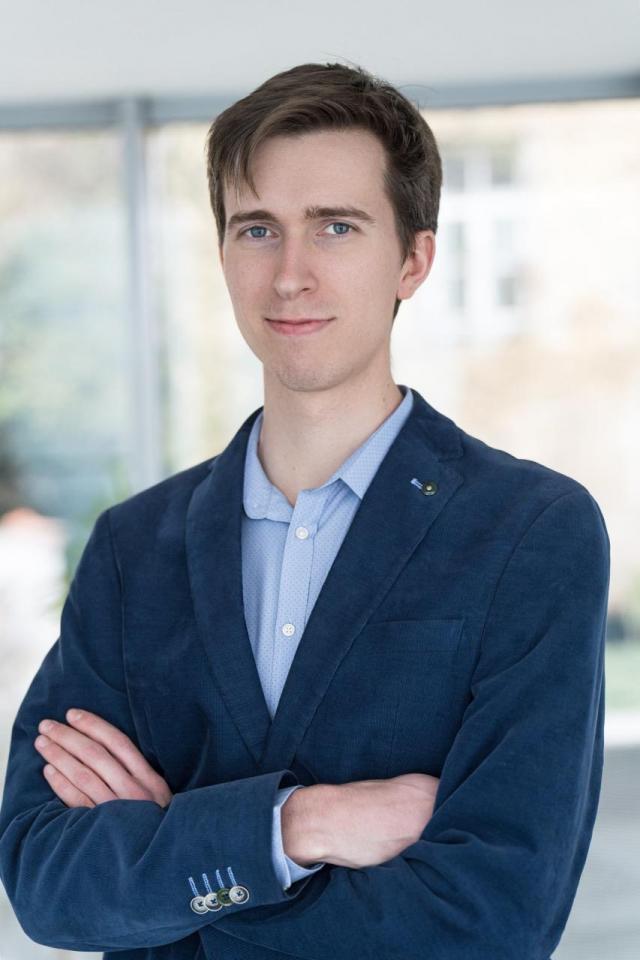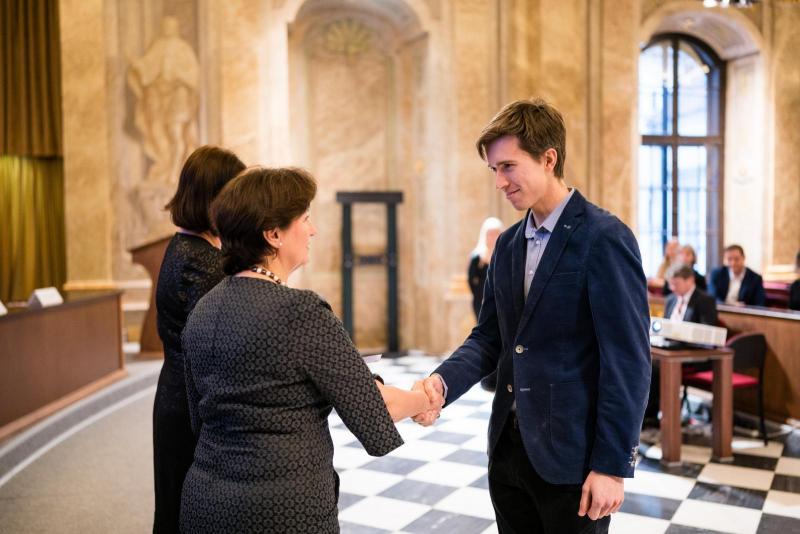Ideas and discoveries
Spacetime navigation: doctoral research from FEEC BUT introduces an innovative approach to spatial function estimation

Signal processing and, in particular, the estimation of spacetime function in conjunction with localisation are the focus of doctoral student Martin Ptáček's research at FEEC BUT. Through statistical methods, he aims to find the most optimal solution to refine function estimates and training positions. The goal of the project is to develop an algorithm that uses the chosen methods, as well as functional software. The research finds potential applications in fields such as telecommunications or meteorology.
According to Ptáček, the problem of estimating the spacetime function lies at the intersection of basic and applied research. "I don’t invent mathematical theories, my work is closely related to practical applications, but for concrete purposes I haven’t solved the problem yet," he says. Nevertheless, in the future, geology, meteorology or telecommunications may build on the results of his work.
Given his background in this field during his master's studies, Ptáček is close to telecommunications. And this is also where the potential application is directed. "I have chosen an interesting problem that can be expressed relatively simply, and I am trying to solve it as optimally as possible using statistical methods. We can illustrate this problem with the estimation of mobile signal coverage in the landscape. I’m trying to estimate how well the landscape is covered in selected areas," he explains. This issue is currently being addressed by sending technicians into the field. "They measure the signal in few places, but one can never cover the whole area, so the rest has to be estimated," adds Ptáček.

He explains that by noting that the current uncertainty in position is so small that it does not matter function estimation. "For example, GPS is precise enough for us to estimate the distribution of mobile signal strength using it. But at some point, humanity might be faced with problems like localising on Mars. The uncertainty in positions may be significant, and we will want to use all available information we have at the cost of great complexity to solve the task as accurately as possible” he explains.

At the end of his research, Ptáček envisions an algorithm that combines selected methods. "I am heading towards a statistical method that will be translatable into software. At the same time, software will be created to test the methods. The algorithm itself will be generic. The question is, which methods will be suitable," says Martin Ptáček.
He acknowledges that the entire problem could be solved using the highly promising deep learning and neural network training. "It's a valid approach and would probably work very similarly to what I'm trying to achieve through statistics. For now, I want to arrive at a solution using a more classical, statistical method that doesn't require so much computing power and doesn't rely on a large training database. But it certainly makes sense to also ask whether it makes more sense to solve the problem using statistics or deep learning," Ptáček concludes, stating that he intends to explore this question concurrently with the main research plan. Martin Ptáček received the prestigious Brno Ph.D. Talent award for his research.
A student from BUT founds OMG Robotics and changes the way computer science is taught in Czech schools
BUT sensors protect bee colonies from starvation and theft
Antibiotic resistance in the poultry microbiome is investigated by FEEC BUT
Scientists from FEEC BUT have developed a bracelet that warns of the risk of Parkinson ’s disease
High school students visit BUT to experience the cyber arena